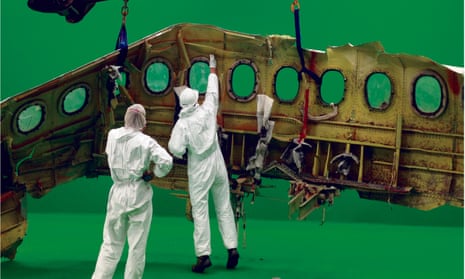If any one event defines the confusion and savagery of the Ukrainian conflict for much of the world, it is the downing of Malaysia Airlines flight MH17, on 17 July, 2014. There was the shock and the grief at the loss of 298 people on a commercial airliner that had nothing whatsoever to do with the war on the ground; there was the disorderly and at times sacrilegious treatment of the crash site; and there were the bitter recriminations about blame.
The Dutch investigation, which appears to have been impeccable in every way, has confirmed what the vast majority of people already thought they knew: that the plane was brought down over the war zone by a Russian-made Buk surface-to-air missile. The report also expressed criticism, both of the Ukrainian authorities and of commercial airline practice.
The Ukrainian authorities were condemned for keeping the airspace over eastern Ukraine open, despite evidence that planes had started to be shot down at much higher altitudes than before – in other words that there had been a change in the combatants’ capability. Commercial airlines were also taken to task for not doing more to inform themselves about what hazards their planes might face from activity on the ground, with a hint, but no more than this, that commercial decisions might have trumped safety. Changes have been, or are being, introduced as a result of these observations.
The gaping hole in the Dutch report, of course, was any finding of culpability. And while this was no surprise – investigators have stressed time and again that the question of blame went beyond their mandate and would have to be dealt with by a separate criminal investigation – it leaves perhaps the biggest question unanswered. Who shot MH17 out of the sky?
Not that this remains a question for many people. If you ask anyone in pretty much any western street, they are entirely clear. The culprit is Russia’s president, Vladimir Putin. The impression has been left – and western supporters of the Kiev government did nothing to discourage it – that Putin had just been sitting in the Kremlin calculating how he could make matters even worse, and MH17 was the answer.
Yet it is not that simple. A Russian-made Buk missile is not the same as a Russian Buk, and even if it came from Russia, the Buk was not necessarily supplied with the say-so of the Russian authorities. Even in the further event that the Russian defence ministry, or perhaps the Kremlin, had taken the decision to supply rebels in the east of Ukraine with such a weapon, the idea that it was supplied with the intention of bringing down a civilian airliner is patently absurd.
The legal and ethical questions here remind me of the dilemmas presented to aspiring Oxbridge candidates in the days when they set general entrance exams. The Ukrainians and Russians had close military relations for decades, before and after the collapse of the Soviet Union. Both have Buk missile systems; the particular Buk in question could already have been in Ukraine and acquired by the rebels, or it could – as a possibly discredited video suggests – have been transported across the border from Russia.
If Russia knowingly supplied weapons to the rebels that were more sophisticated than they could use, then it may be partially culpable – but did it? Another theory is that the missile batteries were actually manned by Russian troops. If so, were they volunteers (effectively mercenaries), or were they under orders from Moscow? This matters.
Whatever the truth – and we do not yet know the whole truth, despite widespread assumptions of Russian guilt – there has long been one certainty. The political and material consequences for Russia were enormous. The reputations of the Russian authorities and of Putin personally were left in tatters. Western sanctions were markedly strengthened in response to the disaster, and EU solidarity, which was starting to look shaky, was reinforced. The war in eastern Ukraine may well have been prolonged as a consequence.
With hindsight, it may turn out that the price paid by the rebels was even higher, in that this catastrophic mistake – for it was a mistake – ultimately cost them their lifeline from Moscow. The Kremlin could not make this immediately apparent for misplaced reasons of national pride. But Moscow’s support – always in my view exaggerated – started to wane from last autumn.
As Putin has switched his attention to Syria, the east Ukrainian rebels have largely been cut adrift. The Minsk-2 ceasefire is holding; and a political settlement could be on the cards. The perverse longer-term result of MH17 could even be the survival of Ukraine (minus Crimea) as a unitary state.







